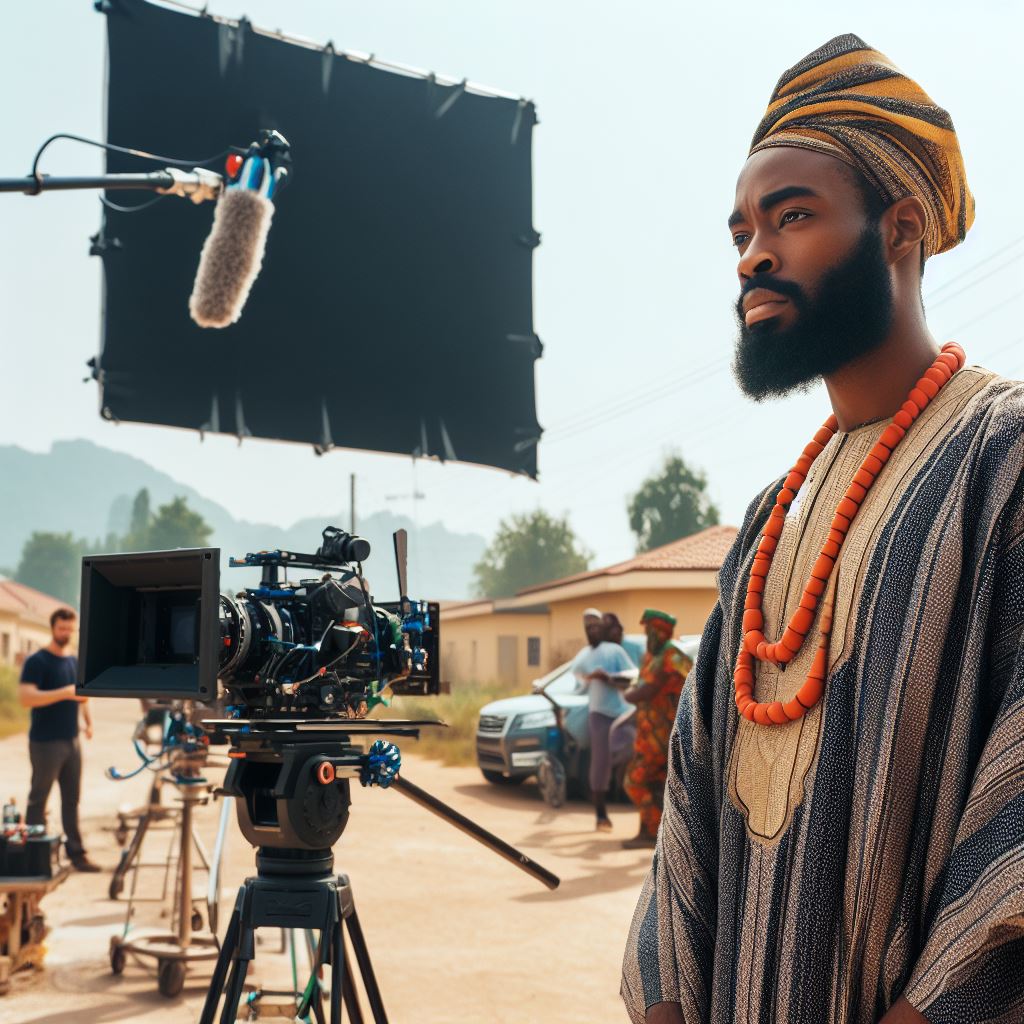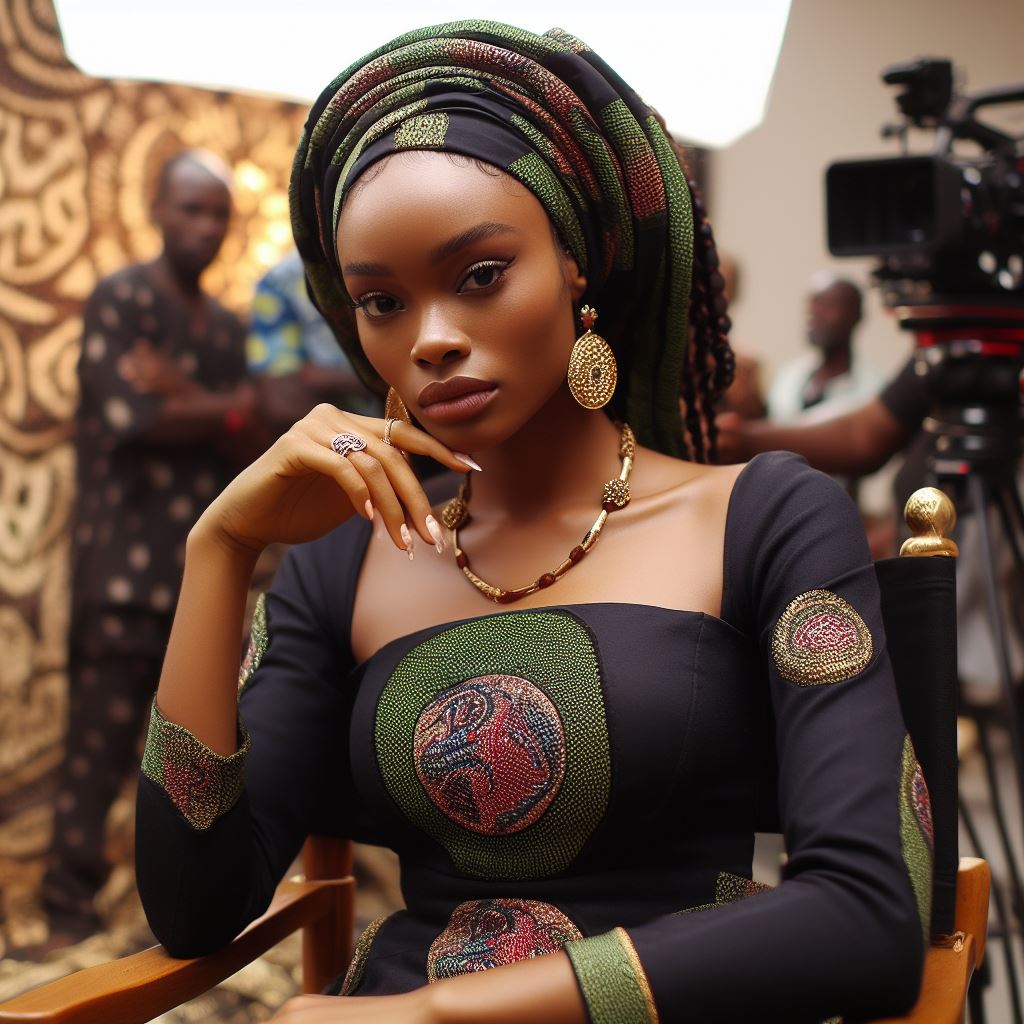Introduction
A. Overview of Nigerian Film & Video Studies Degree
Embarking on a Nigerian Film & Video Studies Degree opens doors to an enriching exploration of the nation’s vibrant cinematic landscape.
From Nollywood’s rise to storytelling traditions, this program immerses students in a dynamic world.
B. Importance of Choosing Key Courses
Selecting the right courses is pivotal in shaping a comprehensive understanding of the industry.
These courses provide essential skills, deepening insights into film production, cultural nuances, and critical analysis.
Strategic course choices empower graduates to navigate the dynamic realms of Nigerian cinema, contributing meaningfully to the field.
In this section, we’ll unveil the core courses that form the backbone of a Nigerian Film & Video Studies Degree, offering students a roadmap to a fulfilling and impactful educational journey.
Foundational Courses
A Nigerian Film & Video Studies degree program offers a range of key courses that provide students with a comprehensive understanding of the Nigerian film industry and the theoretical foundations of film studies.
These foundational courses play a vital role in shaping students’ knowledge and skills in the field.
A. Introduction to Film & Video Studies
In this course, students are introduced to the fascinating history and development of the Nigerian film industry.
They explore how Nollywood, as it is popularly known, emerged and grew to become the second-largest film industry in the world.
Students learn about the pioneers and significant milestones that have shaped Nigerian cinema.
Additionally, the course provides an introduction to key concepts and terminology in film studies.
Students learn about essential elements that make up a film, such as cinematography, editing, sound, and narrative structure.
They gain a critical vocabulary that enables them to discuss and analyze films effectively.
B. Film Theory
The Film Theory course examines different theoretical approaches used in analyzing films.
Students delve into various perspectives, including formalism, realism, auteur theory, semiotics, and postcolonial theory.
Through comprehensive discussions and analysis, they develop a deep understanding of these approaches and their application in interpreting films.
Furthermore, students explore the critical theories that shape the Nigerian film industry.
They examine the social, cultural, and political contexts in which Nigerian films are produced and consumed.
This understanding helps students analyze films within their broader societal and historical frameworks.
The Film Theory course equips students with the tools to critically analyze films, enabling them to appreciate the aesthetic and cultural aspects of Nigerian cinema.
They learn to identify and evaluate the messages, themes, and artistic choices made by filmmakers, enhancing their ability to engage in informed discussions and scholarly research.
These foundational courses provide the necessary knowledge and skills for students pursuing a Nigerian Film & Video Studies degree.
They serve as a solid basis for further exploration and specialization in specific areas of interest, such as directing, cinematography, screenwriting, or film criticism.
By understanding the history, concepts, and theories of Nigerian film, students can contribute to the growth and development of this vibrant industry.
Read: Challenges & Opportunities in Nigeria’s Film Education
Production Courses
In addition to the theoretical knowledge gained from courses in film and video studies, practical production courses are crucial for a well-rounded education in this field.
These courses focus on equipping students with the necessary skills to bring stories to life through visual storytelling.
A. Screenwriting
The first important production course in a Nigerian Film & Video Studies degree is screenwriting.
This course teaches students the basics of storytelling and scriptwriting techniques.
Students learn how to structure narratives, create engaging characters, and write compelling dialogue.
Through various assignments and exercises, students will develop their skills in writing scripts specifically tailored for film and video projects.
Screenwriting is a crucial skill for any aspiring filmmaker or video content creator.
A well-written script forms the foundation of a successful film or video project.
This course enables students to effectively communicate their ideas and visions through the written word, ultimately translating it into captivating visual content.
B. Directing
Another vital production course in a Nigerian Film & Video Studies degree is directing.
This course focuses on understanding the role of a film director and the vast responsibilities they undertake.
Students learn about the director’s vision, their collaboration with other departments, and their crucial role in interpreting the script and bringing it to life.
One key aspect of the directing course is gaining hands-on experience.
Students actively engage in directing short films and various video projects.
Transform Your Career with Expert Guidance
Get personalized mentorship consulting that’s tailored to your unique path. Our expert advice is actionable and exclusive.
Get StartedThis practical experience helps students develop their skills in making creative choices, working with actors, and effectively utilizing visual elements to enhance storytelling.
In fact, production courses are essential components of a Nigerian Film & Video Studies degree.
Screenwriting courses teach students the basics of storytelling and scriptwriting techniques, while directing courses provide hands-on experience in bringing stories to life through visual storytelling.
These courses equip students with the skills necessary to excel in the film and video industry, enabling them to create compelling and impactful content.
Read: What Sets Nigerian Film Studies Apart from Other Countries?
Cinematography and Editing Courses
Cinematography and editing courses are vital components of a Nigerian Film & Video Studies degree.
These courses provide students with the technical skills and creative knowledge necessary to become successful cinematographers and film editors.
In this section, we will explore the key topics covered in these courses and their importance in the field.
A. Cinematography
1. Introduction to camera operation and composition techniques
One of the first things students learn in a cinematography course is how to operate a camera effectively.
They are taught the basics of camera settings, such as aperture, shutter speed, and ISO, and how to capture the desired shots.
Additionally, students study various composition techniques, including framing, rule of thirds, and shot angles, which help them create visually appealing and meaningful shots.
2. Learning about lighting, lenses, and visual aesthetics in film production
Understanding lighting is crucial for cinematographers as it sets the mood and atmosphere of a scene.
Students are taught how to work with natural and artificial light sources, manipulate shadows, and use lighting equipment effectively to achieve desired effects.
They also learn about different lens types and their impact on the visual aesthetics of a film.
This knowledge helps them create the desired look and feel for each shot.
B. Film Editing
1. Introduction to editing software and techniques
Film editing is the process of selecting and combining footage to create a coherent and engaging story.
In this course, students are introduced to popular editing software like Adobe Premiere and Final Cut Pro.
They learn the basics of editing, including importing and organizing footage, making cuts, transitions, and adding sound effects.
They also explore various editing techniques, such as continuity editing, montage, and jump cuts, to create a seamless and visually appealing narrative.
2. Developing skills in post-production processes to enhance storytelling
In addition to learning editing techniques, students also delve into the post-production processes that enhance storytelling.
They learn about color grading, sound design, and visual effects, which are crucial for creating a specific mood or atmosphere.
They also study the importance of pacing and rhythm in editing, ensuring that the film flows smoothly and engages the audience.
Through hands-on projects, students develop their skills in post-production, gaining experience in transforming raw footage into a captivating film.
In short, cinematography and editing courses play a significant role in a Nigerian Film & Video Studies degree.
These courses equip students with the technical knowledge and creative skills needed to excel in the fields of cinematography and film editing.
By mastering camera operation, composition techniques, lighting, editing software, and post-production processes, students are prepared to create visually stunning and compelling films that captivate audiences.
Read: Top Universities in Nigeria Offering Film and Video Studies

Nigerian Film Industry Courses
A. Nollywood Studies
The Nigerian film industry, popularly known as Nollywood, has gained global recognition for its contributions to the world of cinema.
A degree in Nigerian Film & Video Studies is ideal for individuals passionate about understanding the intricacies and nuances of this industry.
The first key course in this degree program is Nollywood Studies. It delves into the history, growth, and impact of Nollywood.
Students will explore the beginnings of the industry and its evolution over time.
They will understand how Nollywood has become the second-largest film industry in the world, surpassing even Hollywood in terms of film production.
This course also aims to analyze the cultural, social, and economic dimensions of Nigerian cinema.
Students will examine how Nollywood films reflect and impact Nigerian society.
They will study the cultural heritage portrayed in movies and explore the ways in which Nigerian cinema has influenced other African film industries.
B. Nollywood Acting
Another significant course in a Nigerian Film & Video Studies degree is Nollywood Acting.
This course provides students with practical training in acting specifically tailored for film and video productions.
It equips aspiring actors with the skills necessary to excel in the unique challenges of Nigerian cinema.
Students will learn various techniques to portray characters authentically in Nigerian films.
They will study the cultural context in which these characters exist and develop an understanding of the societal norms and values that influence characterizations.
Through practical exercises and scene work, students will hone their acting skills specific to Nollywood’s distinctive style.
Nollywood Acting also emphasizes the importance of storytelling and emotional expression.
As students develop their craft, they will learn to effectively communicate the narrative of a film through their performances.
They will understand the significance of non-verbal cues and body language in conveying the intended emotions and messages to the audience.
In general, a Nigerian Film & Video Studies degree offers students an in-depth exploration of Nollywood and equips them with the necessary skills to thrive in the industry.
The courses mentioned above are just a glimpse of the comprehensive curriculum that covers a wide range of subjects related to Nigerian cinema.
Graduates emerge as well-rounded professionals who can contribute to the growth and development of the Nigerian film industry.
Read: Building a Portfolio: Tips for Nigerian Film Students
Elective Courses
In addition to the core courses, students pursuing a Nigerian Film & Video Studies degree also have the option to choose elective courses.
These courses allow students to specialize in specific areas of interest and expand their knowledge and skills.
The elective courses offered in this program include Documentary Filmmaking and Animation and Visual Effects.
A. Documentary Filmmaking
The Documentary Filmmaking course is designed to introduce students to the art of creating non-fiction films.
Through lectures, discussions, and hands-on projects, students learn the fundamentals of documentary storytelling, including research, interviewing techniques, and ethical considerations.
They also explore various documentary styles and genres, such as observational, participatory, and poetic documentaries.
By the end of the course, students are able to plan, shoot, and edit their own short documentary films.
They gain a deeper understanding of the power of documentaries in raising awareness, provoking social change, and giving voice to marginalized communities.
B. Animation and Visual Effects
The Animation and Visual Effects course, on the other hand, focuses on the technical and creative aspects of animation and visual effects in film and video projects.
Students learn the principles of animation, including timing, spacing, and exaggeration, and practice creating animated sequences using industry-standard software.
In addition, students explore the use of visual effects to enhance storytelling and create visually stunning and immersive experiences.
They learn how to integrate computer-generated imagery (CGI) into live-action footage and create realistic and fantastical effects that captivate audiences.
By gaining hands-on experience in animation and visual effects, students develop the skills necessary to collaborate with directors and visual effects artists in designing compelling visuals for films, television shows, and commercials.
Both the Documentary Filmmaking and Animation and Visual Effects courses offer valuable opportunities for students to explore and refine their artistic voices.
These elective courses, along with the core courses, provide a well-rounded education in Nigerian Film & Video Studies and prepare students for diverse career paths in the film and video industry.
Whether students choose to specialize in documentary filmmaking or animation and visual effects, they graduate with a comprehensive understanding of the technical, aesthetic, and ethical aspects of their chosen field.
They are equipped with the skills and knowledge to create impactful and visually captivating films and videos that contribute to the rich and vibrant Nigerian film industry.
Conclusion
Key courses in a Nigerian Film & Video Studies Degree provide a comprehensive understanding of the industry.
These courses equip students with the necessary skills to excel in various aspects of film and video production.
Key courses also offer insights into the cultural and social significance of Nigerian cinema.
By exploring different courses, students can broaden their knowledge and expand their career opportunities.
Each course brings unique perspectives and specialized skills that contribute to a well-rounded education.
Students should embrace the opportunity to learn from industry professionals and collaborate with fellow students.
The diverse range of courses in the program allows students to uncover their passions and specialize in specific areas.
Taking advantage of the various courses offered will ultimately enhance students’ chances of success in the film and video industry.




